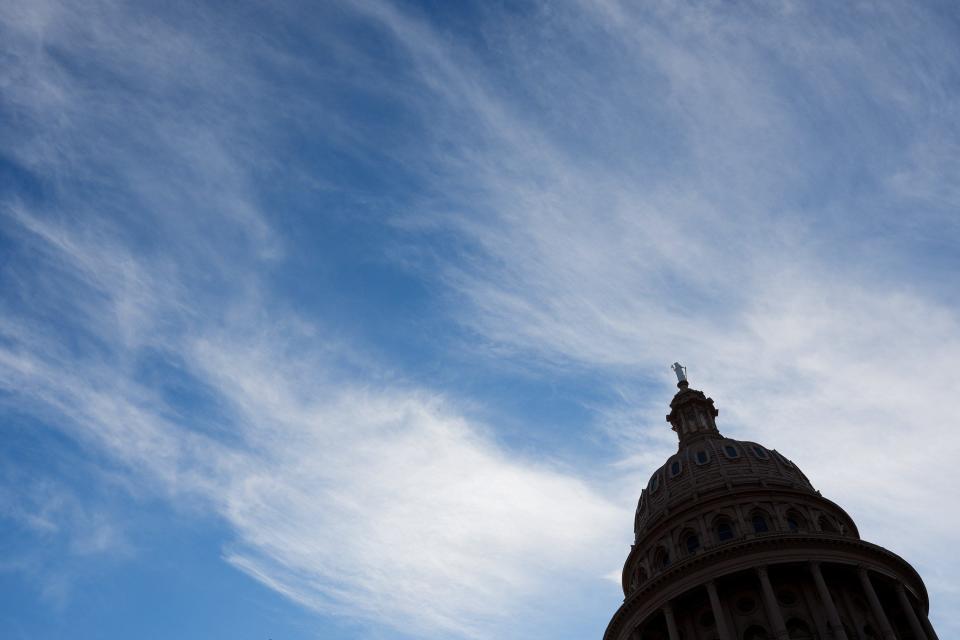Opinion: It's wrong to force Texans to pay for local-government lobbying
In 2023, school choice went mainstream. So far, Iowa, South Carolina, Utah, Arkansas, Florida, Indiana, Oklahoma and Nebraska have enacted substantial measures to empower parents and students through educational freedom.
Texas ended this year's regular legislative session without embracing school choice. And don't expect much change, no matter how many special sessions the governor calls.
Reasonable people can disagree on how best to reform education. But school-choice proponents face an obstacle many activists don't: taxpayer-funded lobbying.

The Texas Association of School Boards (TASB) is one of many nonprofit organizations that tap public coffers to sway lawmakers. And the group isn't subtle when it comes to school choice. TASB thundered that the regular session's SB 8, which would have created education savings accounts, shifted "public money into a new, costly entitlement program that would mostly benefit wealthy families in urban areas to the detriment of our public schools."
Unfortunately, in Texas, local governments devote considerable expenditures to the persuasion game. They employ three tools to affect the policymaking process. First, in-house personnel and resources – e.g., officials testify during hearings, conduct press conferences, write op-eds, and post on Facebook and Twitter. Second, even the smallest of government entities often find that hiring a professional influencer, or an entire lobbying firm, can yield major legislative "wins." (Securing special appropriations is a particular skill.) Finally, "membership" organizations claim to "speak" for villages, towns, cities, counties, special districts, government educators and administrators, police officers, etc.
Whatever form it takes, taxpayer-funded lobbying is wrong, because it makes citizens subsidize "messaging" they may oppose. As the U.S. Supreme Court ruled in a 2018 decision, when government compels speech, "individuals are coerced into betraying their convictions," and forcing "free and independent individuals to endorse ideas they find objectionable is always demeaning."
The Southwest Public Policy Institute recently published a paper on intragovernmental advocacy in the eight states of the American Southwest. We found that from Austin to Santa Fe to Carson City, taxpayer-funded lobbying is commonplace. Battles over school choice, corporate welfare, criminal justice, energy regulations and many other important matters are heavily impacted by public-sector entities.
It's true that the movement to stop this misuse of tax dollars is associated with the right. But our research revealed that the left should be concerned as well. We documented multiple instances of government deploying its considerable might against the "progressive" policy agenda – for example, combating the reduction of law-enforcement budgets.
But here's what's uniquely maddening about local-government lobbying in Texas. The state stands as a national model for prohibiting taxpayer-funded advocacy at the state level. Decades ago, lawmakers banned every "state agency" from using "appropriated money" to "employ, as a regular full-time or part-time or contract employee, a person who is required … to register as a lobbyist." In addition, "membership dues to an organization that pays part or all of the salary of a person who is required … to register as a lobbyist" are forbidden. And state agencies cannot "attempt to influence the passage or defeat of a legislative measure," although use of "resources to provide public information or to provide information responsive to a request" is, understandably, permissible.
Freed from such restrictions, Texas' local governments understand how strongly the loophole amplifies their capitol-complex muscle. In March, the Senate's Committee on State Affairs held a hearing on SB 175. The bill attempted to restrain local-government lobbying. Enemies – including the County and District Clerks' Association of Texas, Texas Association of School Administrators, Texas' Big City Mayors Group, Texas Association of County Auditors, and Texas Municipal League – turned out in force. The bill died.
In Texas and throughout the American Southwest, it's time for good-government activists worried about the subversion of democracy via "dark money" to join conservatives and libertarians to put an end to all taxpayer-funded lobbying. No matter what the issue, no matter what the bill, no matter what the ordinance, no matter what the regulation, intergovernmental advocacy is compelled speech. That's a fundamental violation of the First Amendment.
Muska is vice president of research at the Southwest Public Policy Institute.
This article originally appeared on Austin American-Statesman: Opinion: Texans shouldn't have to pay for local-government lobbying

